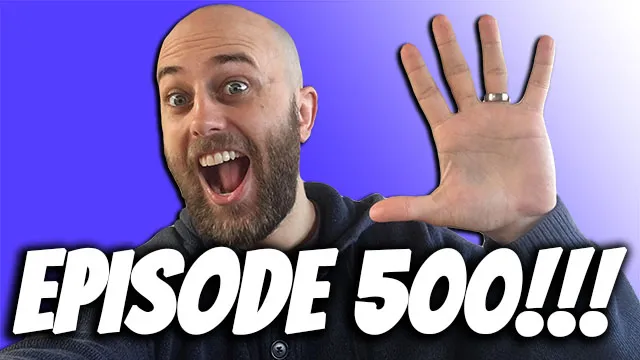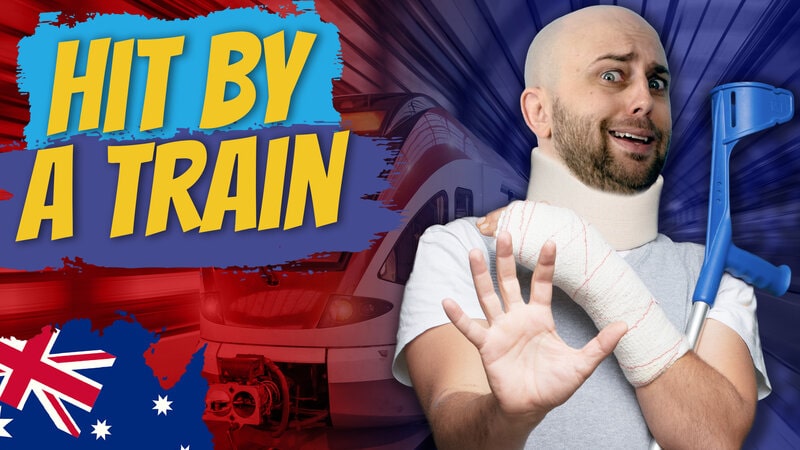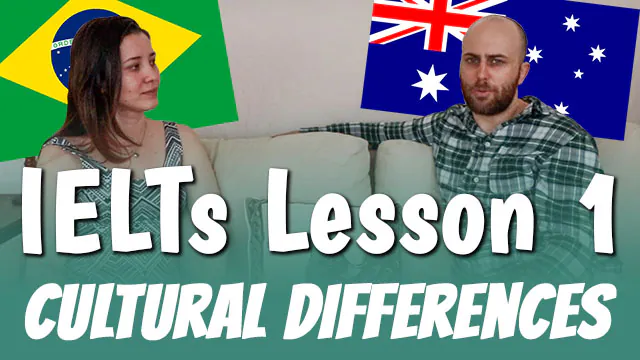Walking With Pete: What’ve I Been Up To Recently?
In this episode of Walking With Pete I tell you guys a little bit about what I’ve been up to recently!
Walking With Pete: What Have I Been Up To Recently?
G’day guys. Welcome to this episode of Aussie English. Today I’m just going to sort of chat to you guys about what I’ve been up to recently, where I’m at in life, um… yeah I guess what I’ve been doing really. I just thought I’d give you um… a bit more exposure to just people chatting about every day things. So, let’s get started.
Most recently I’ve just been working a lot. So, I work at a restaurant, a Spanish restaurant in the city of Melbourne, and Melbourne is lucky. It’s one of those beautiful cities in the world that has so many different cultures and races of people. It’s almost more… more common to hear a different language from English being spoken on trams, in the public arena, in the public sphere, so wherever I’m walking around Melbourne I tend to hear languages like Chinese, Spanish, Brazilian, French, Indonesian, all sorts of different languages. And it’s actually become more and more and more intense like that. So, it’s really culturally diverse. So, I work at a Spanish restaurant and I actually work with a lot of Spanish people. So, I think there’s at least three Spaniards that I work with. Um… A girl and two guys, and one of the other girls that I work with is from Chile. So, these are all the waiters and they all speak Spanish. I unfortunately don’t speak Spanish but I do talk to them sometimes in Portuguese and we joke. Um… and also at work we have a lot of Thai people, there’s a Korean guy, and there’s actually probably only two or three other people at work who are Australian. So, I work in a Spanish restaurant that was originally set up with a guy that was a chef that went to Spain and studied over there doing a lot of cooking and came back and brought that cuisine back to Melbourne. And, as a result they set up the restaurant um… I think originally there wasn’t any… there weren’t any Spanish people at all at the restaurant but now the front of house, and “The front of house” is how we refer to the people who work in management or as waiters in the restaurant. “The front of house” um… are almost all Spanish now. So, there’s a few of us who aren’t but the large majority are. So, yeah, I’ve been working a lot of shifts at the restaurant recently. It’s starting to die down a little bit because we’ve hired an extra person and um… we have a new boss. So, we’re getting a few less shifts. So, I’m scraping by. I’m scraping by with the little money that I make at the moment from three or four shifts a week. And when I’m not at the restaurant at the moment I am at the museum in Carlton Gardens, in Melbourne. So, this one’s sort of a short walk from the CBD. It’s… I can see the CBD from the museum, from the building, and it’s near a really really really big building called the Royal Exhibition Building. This is in the dead centre of Carlton Gardens. And this is obviously an exhibition centre, hence the name. Um… so there’s always a lot of different exhibitions being held there whether it’s for health and fitness, tattoos, comicon kind of things, even car exhibitions. I think every year I tend to see car exhibitions occur there where you’ll find over a weekend heaps and heaps of people are going and there’s Ferraris and Porsches and all sorts of other luxury cars parked all around it and inside of it and they bring thousands and thousands of people in to see this stuff. So, I get a good view of the Royal Exhibition Building from where I work inside of the museum. And, yeah, I’m there at the moment five days a week. I’m trying to study and finish my PhD, and “PhD” stands for um… Doctorate of Philosophy or Philosophy Doctorate, PhD. And, I… I think, at least I hope, I have maybe two, three… three or four months left. Three or four months left. I’m hoping to finish in December this year. And so, at the moment what that implies or what that requires is me to finish writing the papers for my PhD, or my chapters for the PhD, and I’ve got three of them. And these are on various different things related to native Australian rats. They’re the group that I’m studying for my PhD. And to give you a simple idea of what I’m looking at Australia has about sixty to seventy species of native rats, of native rodents, and… I should also tell you the difference between a rat and a mouse. The difference a rat and a mouse. A mouse I believe is under fifty grams, hence the size, you know, a house mouse that you guys would all know. They’re very very small. But they’re all rats. So, rats, rodents, those guys are all rats. Mice are just small rats under fifty grams, I believe. Rats though, or at least as we would colloquially refer to rats as rats, tend to be bigger than fifty grams. So, you’ll often seen this if you see the names of these native animals. They’re going to be called a mouse if they’re pretty small, and if they’re bigger than fifty grams they’ll be called a rat. So, like Australia’s biggest rat, the water rat, it’s sort of our version of an otter. And these guys live in the ocean, at least in estuaries near the ocean, and in river systems, and all around the coastline of Australia. And they’re about a kilo to a kilo and a half, and they swim around like otters and they eat all kinds of things like shellfish and crayfish and that sort of stuff. Those guys are really cool but they’re a rat because they’re so big. And on the other hand we have mice like ah… the delicate mouse, which is this really really tiny little guy. I think he’s only ten grams and he lives in the monsoon tropics of Australia. So, the monsoon tropics is the northern portion of Australia that gets that seasonal wet season and seasonal dry season as opposed to the different seasons that we get down here in Melbourne like summer, like winter, spring and autumn. In the monsoon tropics, which is the entire northern portion of Australia, the northern portion of Australia. So, they get the wet season where it rains for six months of the year and then they have the dry season where it’s… it doesn’t rain for six months of the year and it becomes a lot drier. So these little mice live up there and they’re only about ten grams. Very very very small. So, yeah, I’m doing my PhD on Australian rats. I’m looking at how they are related to one another. So, it’s almost like you have all of these different rat species, and it’d be like going to a family reunion but you’re not part of the family and so you see all these people, you know they’re related but you don’t know how they’re related. That was effectively the situation that we had with Australian rats where we knew they were all related to one another but we didn’t know how they were related to one another. So, we didn’t know if all the small species were really closely related and all the bigger species weren’t, um… they were more distantly related, or if all the species that live in the desert were closely related and all the species that live in the rainforest were closely related. And so, my work was looking at their relationships and trying to put together effectively a family tree for the different species. So, like instead of say your uncle, ah your father, you, your sister, all of those positions are different species when we think of a family tree but a species tree, so, for different species. And yeah, I guess in a nutshell, which is sort of like to give you the basic idea, in a nutshell, to give you the nutshell idea, explanation of what I found, it was that a lot of the species are actually not closely related to other ones that they live near. So, for example, a lot of the species who live in the desert are actually more closely related to species that live in wet forest than they are to other species in the desert. So, that was one of the really really interesting findings that we didn’t expect. Anyway, so I’m looking at that. I’m doing the sort of evolutionary origins, the evolutionary biology of these guys, and I’m piecing it together by using their DNA. So, I sequence their DNA. I compare the two different strands of DNA between two species and then I can tell how closely related they are or aren’t. Um… so apart from that I guess yeah, working on the PhD, trying to get that finished within the next few months. And at the moment just writing, writing, writing, writing. So, when I’m not working at the restaurant I’m working on the PhD. When I’m not working on the PhD at the moment I’m working on French and Portuguese, but mainly Portuguese. And so, every day that has me working Anki. And Anki is this program you may have heard me talk about before where you enter phrases and/or words, and you can sort of test yourself to try and remember it. So, it’s sort of a spatial repetition system that helps you test your memory and based on the response you give, whether something was easy or difficult, you will see that thing sooner if it’s really hard and you didn’t know what it was, and less soon if the thing was really easy. So, I absolutely love this program, and I used it for French. I’m hoping to go more into it in the future so I can tell you guys how you could potentially use this program to learn English, but yeah, if you… if you’re interested in it now I definitely recommend checking out my video that I put up about how I use Anki, and how I set it up. Um… and also just do a Google search for “Anki”, and Anki is spelt “A-N-K-I”, Anki. And, you can also just search on YouTube for a guy called Gabriel Wyner, and just “Anki”. So, I think Gabriel’s spelt “G-A-B-R-I-E-L” and Wyner I think is “W-Y-N-E-R”, and Anki. And he has a great set of videos up there helping you put together how to use Anki for any kind of language. So, yeah, brilliant program. I use that every day and at the moment it’s probably about forty minutes of study every day using that program. And then, probably like you guys I actually listen to a podcast called ah… Café Brazil, and it’s about thirty minutes, it’s pretty advanced stuff. So, this guy talks about all kinds of really really advanced things. Probably a little more complicated than I do whether it’s talking about entrepreneurship in the most recent episode that I’ve been listening to, and he references a lot of different music and a lot of different current affairs and events that are happening which is really good. But I have to get the manuscript that he writes out for each episode and then I have to sit there and listen to the episode probably ten times before I really have a good understanding of what’s being said and how it’s being said. But that’s really good and I wanted to I guess, get into that a little bit today as well, and tell you, or at least discuss with you guys, that a really good way of improving your language learning, if you don’t already know, or you don’t already do this, is obviously to read the transcripts while you listen. So, at least, to start with when you first listen to an episode. If you’re having trouble with the language that I use with any of the words that I use, if you find that I’m speaking too quickly then it will greatly greatly greatly aid you if you read the transcript a few times whilst listening to my episode, which ever episode it is, and then obviously highlight all the words that you don’t understand, or the phrases that you don’t understand, highlight those. Look them up. Get a definition for them. Write it, whether it’s in English, even in your own native language next to those words, and then again listen to that episode using that transcript. I’ve been doing this a lot with Café Brazil’s podcast episodes, and I tend to only use one episode a week because the episodes are about thirty to forty minutes long. So, it actually takes me quite a while to get through each episode and I just keep listening to it multiple times a day I’ll have it on and I’ll be trying to concentrate and understand as much as I can, and if I don’t I go back to the manuscript that I’ve read and that I’ve highlighted and annotated for any of these words or areas that I’m having difficulty with. And I think, I definitely think this is a really really good way to improve your language because it’s… it’s almost… it’s… it’s easier to be tempted to want to change what you’re using really quickly and all the time because the same material can get boring. I understand that and I feel that all the time with French and Portuguese depending on what I’m reading or what I’m using, but I think it’s understated just how important it is to go over the same episode, the same materials, again and again and again almost ad nauseam. So, almost to the point of being bored out of your mind, you know? If you get to that point where you understand everything and something’s become incredibly incredibly boring, you’re doing very very well. And so, you move onto the next thing. So, anyway that’s what I’m trying with Brazilian Portuguese at the moment. I’m trying to do this one episode at a time and really go deep into the episode and try and understand every bit that I can when I read through it, when I highlight all the words and all the different phrases that I didn’t know beforehand, I look them up. And another thing that I do is that I try and take those words and phrases after I’ve read them and worked them out and annotated the manuscripts and then I put them into Anki. So, then I can use Anki each day and it will test me on the words that I’ve just learnt using that podcast’s episode’s manuscript. So, this is something I really recommend you guys do with Aussie English. If you haven’t already, or if you’re having trouble with the speed at which I’m speaking or the vocabulary that I’m using, definitely read the manuscript, highlight the words, list the words, take them out of the manuscript and work out… ah… what Anki is. So, do a search for Anki, “A-N-K-I”, download it, try and get it working and then enter these words that you’re trying to learn or these phrases that you’re trying to learn into the program and you’ll definitely notice really really quick improvement. And your memory, your memory goes crazy. It just suddenly remembers the most abstract words. Anyway, so that’s what I’ve been doing. I’ve been working on languages. When I’m not working on languages I’m at the museum studying. When I’m not at the museum studying I’m at the restaurant working. And aside from that I’ve been skateboarding a little bit trying to get back into skateboarding because it actually has sort of a lot to do with language learning, or at least the process of learning, and I really enjoy that where I’m trying to learn the basic tricks for skateboarding around, you know, just doing the basic sorts of tricks that you can do on the ground skateboarding around, and I have to try to get in a certain number of reps, a certain number of repetitions for each of those tricks each day as I learn. And I’m not at all picking it up really really quickly. Like, I can’t just try and learn a new trick and within a minute have it. I have to spend multiple days trying to work it out, where to put my feet, how high to jump, what to do. And so, that I find a really challenge and it’s… it’s really entertaining to me like learning a language, like learning anything out there. So, anyway, this episode’s probably gone a bit long guys. I just wanted to give you an updates, talk to you just about what I’ve been up to recently, and give you some more exposure to that kind of language and that kind of discussion. Hope you guys are enjoying the episodes, and have a good one. Enjoy your weekend! See you later!
Here's what you get when you sign up!
- Read while you listen using the Premium Podcast player.
- Understand every word in every episode.
- Download all PDF transcripts and MP3s for 600+ episodes.
- Get access to bonus member-only episodes.












Responses